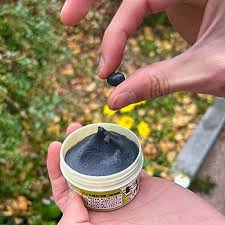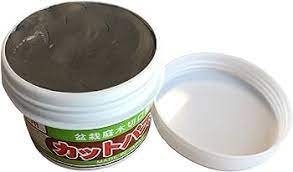Why use Cut Paste and Cut Putty
- Feb 20, 2024
- 2 min read
A lot of people don't fully understand the role of cut putties and cut pastes in bonsai. These products come into play when making large wounds on a tree. Their job is to immediately activate the cells in the wound to start healing while also protecting the wound from drying out or rotting which would stop the wound closure altogether. Both products usually contain certain growth hormones and acids which help in the healing process. For small wounds and cracked branches, use a paste, and for larger surface wounds, use a putty.
Cut paste is essential if you want to control how scar tissue forms and how scars look after healing. Fresh air and sunlight are the best healers but by not covering large wounds, you are allowing the tissue to dry out, and moisture to enter the wood in the wound causing rotting. This also opens you up to fungal infections on your tree. Just like having a wound on the body, you want to protect it as much as possible, heal it as fast as possible, and have it close with very little scarring.
The resin of conifers is a sticky substance that is released after suffering a cut or a wound. It has the function of a sealant and prevents the entry of insects and diseases into the vascular system of the tree. In this article, we will tell you everything about healing in your bonsai, what cut pastes you can use, and how to apply them.
Trees do not heal; they seal. When a tree is injured, it uses a series of biological processes to isolate and seal the damaged area to prevent disease and decay from entering the healthy tree tissue. The tree responds in two ways: compartmentalization and developing barrier zones. After wounding, the new wood that grows around the wound forms a protective boundary that prevents infection or decay from spreading to the new tissue. Therefore, the tree responds to injury by “compartmentalizing” or isolating older injured tissue with the gradual growth of new, healthy tissue.
Pictures from OfBonsai
Our job as Bonsai owners is to help our trees recover better. Using a clean and sharp chisel, we can cut the irregular and loose edges of the wound. This will help the tree compartmentalize the damaged area and produce a type of "callus" that seals the edges of the wound. Over time, the callus will continue to grow and form a dense neck area around the wound, isolating it from the healthy wood.
reference: Mistral Bonsai; OfBonsai, BlueSky Bonsai.
















Comments